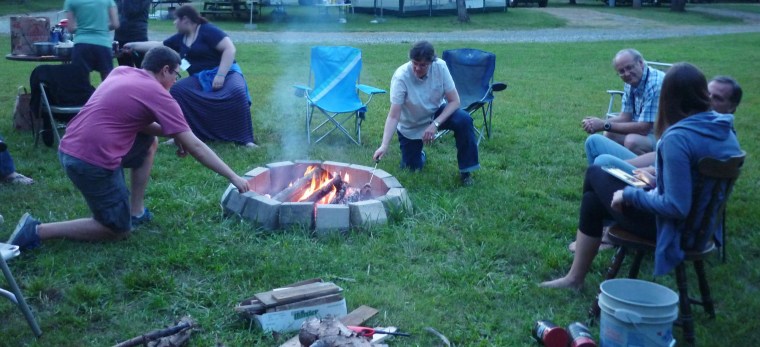The aid workers called their temporary August home “Ebola summer camp”: five RVs parked in the back of their Christian missionary group’s sprawling campus in southwest Charlotte, with orders not to leave until authorities said so.
There were 11 of them, including families with children, who’d returned from Liberia after two colleagues, Dr. Kent Brantly and Nancy Writebol, contracted Ebola and became the first to be flown to America for treatment. Their confinement was the first American quarantine stemming from the current outbreak in Africa, and their identities were kept secret to protect them from rising public anxiety.
Shielded from the media glare, their experience would be much different than that of the family now under quarantine in Dallas for spending time with Thomas Eric Duncan before he became the first person diagnosed with Ebola on U.S. soil. Those four relatives spent most of the last week confined to a small apartment under the watch of armed guards before being moved to a house on Friday.
Only three of the missionaries had personal contact with Brantly and Writebol, and they were the last of their group to leave Liberia. When their charter plane touched down in Charlotte on Aug. 10, a nurse from the local health department climbed aboard in a protective gown, mask and goggles and read them the mandatory order: stay on the grounds of their mission’s headquarters until the 21-day maximum exposure period had passed, or face the threat of prosecution.
I understand the concern and emotion, but Ebola is quite easy to contain. It’s science, not emotion.
The workers knew they hadn’t been exposed enough to make them a high risk of getting the disease. They signed anyway, knowing that officials were just learning how to deal with the potential arrival of Ebola. “We wanted to be cooperative,” recalled Debbie Eisenhut, a surgeon who had treated Brantly and Writebol in Liberia. “We knew there was a lot of emotion and public scrutiny involved, and we wanted to be above reproach.”
The RVs were set up in a remote section of the 90-acre campus of SIM, the Christian aid organization for whom they worked. They were free to talk and hang out, but discouraged from shaking hands or embracing. They shared campfires, ate meals together, went on walks. Twice a day, they took their temperatures and reported their conditions to the local health department. “Not too tough,” Eisenhut, 57, said. “It was a real nice little camp. We called it ‘Ebola summer camp.’”

While the outside world was roiling, there wasn’t much anxiety in the SIM quarantine zone, Eisenhut said. “We had already gone through the most risky time, and the chance of becoming ill was very low. Part of it was early on I was just working so hard and didn’t have time to really think about it.”
She and the other aid workers tried to keep to a routine. They held meetings and discussed projects, including how SIM could return to Liberia to continue the work they’d been doing before the Ebola outbreak: improving hospital care. Eisenhut took an online course that certified her to work in in America until she figured out her next step. She co-authored a report that analyzed the aid workers’ Ebola experience for the Centers of Disease Control and Prevention. “I was sitting in my RV writing like crazy,” she said.
The weeks passed, and while health officials continued quarantine beyond what the aid workers considered the maximum exposure period, the restrictions were gradually relaxed. Eisenhut went to church and shopped. In late August, the last of them were free to leave. No one had gotten ill.
Eisenhut returned to her hometown of Salem, Oregon, and is working in an urgent care center while she waits for the opportunity to return to West Africa. She has watched as the American public health system has refined its Ebola response, and she is encouraged by what she’s seen, despite the chaotic situation in Dallas.
“I think people need to understand that this is not a huge threat to the public, and local health departments are doing a very good job,” Eisenhut said. “I understand the concern and emotion, but Ebola is quite easy to contain. It’s science, not emotion. If you do that, there’s no epidemic, there’s no outbreak."